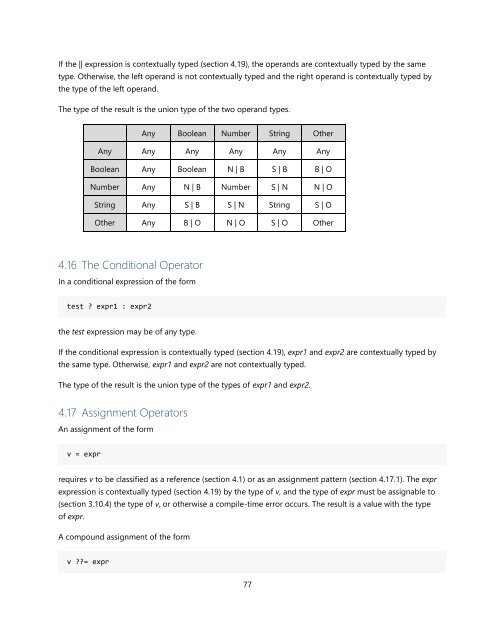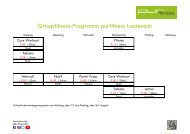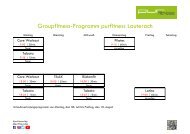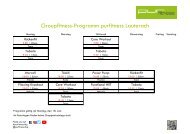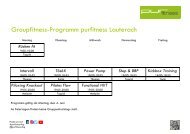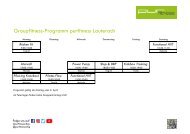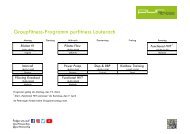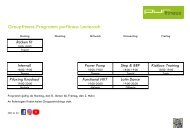TypeScript Language Specification v1.5
TypeScript Language Specification v1.5
TypeScript Language Specification v1.5
Create successful ePaper yourself
Turn your PDF publications into a flip-book with our unique Google optimized e-Paper software.
If the || expression is contextually typed (section 4.19), the operands are contextually typed by the same<br />
type. Otherwise, the left operand is not contextually typed and the right operand is contextually typed by<br />
the type of the left operand.<br />
The type of the result is the union type of the two operand types.<br />
Any Boolean Number String Other<br />
Any Any Any Any Any Any<br />
Boolean Any Boolean N | B S | B B | O<br />
Number Any N | B Number S | N N | O<br />
String Any S | B S | N String S | O<br />
Other Any B | O N | O S | O Other<br />
4.16 The Conditional Operator<br />
In a conditional expression of the form<br />
test ? expr1 : expr2<br />
the test expression may be of any type.<br />
If the conditional expression is contextually typed (section 4.19), expr1 and expr2 are contextually typed by<br />
the same type. Otherwise, expr1 and expr2 are not contextually typed.<br />
The type of the result is the union type of the types of expr1 and expr2.<br />
4.17 Assignment Operators<br />
An assignment of the form<br />
v = expr<br />
requires v to be classified as a reference (section 4.1) or as an assignment pattern (section 4.17.1). The expr<br />
expression is contextually typed (section 4.19) by the type of v, and the type of expr must be assignable to<br />
(section 3.10.4) the type of v, or otherwise a compile-time error occurs. The result is a value with the type<br />
of expr.<br />
A compound assignment of the form<br />
v ??= expr<br />
77


